
Bioresources and Bioprocessing
Scope & Guideline
Fostering Collaboration for a Sustainable Future
Introduction
Aims and Scopes
- Bioconversion of Biomass:
Research focused on the transformation of various biomass sources into biofuels, biochemicals, and biopolymers, utilizing microbial and enzymatic processes. - Bioprocess Engineering:
Studies investigating the optimization of bioprocesses, including fermentation, extraction, and purification methods to enhance yield and efficiency in the production of bio-based products. - Sustainable Waste Management:
Exploration of methods to convert agricultural and industrial waste into high-value products, addressing environmental concerns while promoting resource recovery. - Microbial Biotechnology:
Investigations into the application of engineered microorganisms for the production of valuable metabolites and bioproducts, including enzymes, acids, and pharmaceuticals. - Innovative Extraction Techniques:
Development of advanced extraction methodologies, such as enzymatic and solvent-based processes, to isolate bioactive compounds from natural sources. - Environmental Biotechnology:
Research emphasizing the role of biotechnological approaches in environmental remediation and the sustainable management of resources.
Trending and Emerging
- Metabolic Engineering:
An increasing number of studies are focusing on metabolic engineering techniques to enhance the production of high-value compounds from microorganisms, reflecting a trend towards precision biotechnology. - Biorefinery Approaches:
Research on integrated biorefinery systems that convert biomass into multiple products is gaining traction, highlighting the importance of resource efficiency and sustainability. - Synthetic Biology:
The application of synthetic biology to design and construct new biological parts, devices, and systems for improved bioprocessing is emerging as a significant theme. - Waste Valorization:
There is a growing emphasis on the valorization of agricultural and industrial waste, transforming them into biofuels, chemicals, and materials, showcasing a commitment to circular economy principles. - Nano- and Biotechnological Innovations:
Recent papers reflect an increasing interest in the use of nanotechnology in bioprocessing, particularly for enhancing enzyme activity and improving product recovery. - Bioinformatics and Computational Tools:
The integration of bioinformatics and computational tools in the design and optimization of bioprocesses is becoming more prevalent, indicating a trend towards data-driven research.
Declining or Waning
- Traditional Fermentation Processes:
Research papers focused on conventional fermentation methods have become less frequent, possibly due to the shift towards more engineered and optimized bioprocessing techniques. - Single-Strain Biocatalysis:
There is a noticeable reduction in studies that emphasize the use of single microbial strains for biocatalysis, as multi-strain or consortia approaches gain traction for enhanced efficiency. - Static Cultivation Systems:
The exploration of static cultivation systems for microbial growth has waned, with a growing preference for dynamic and controlled bioreactor systems that offer better scalability and yield. - Non-engineered Natural Products:
Research focusing on the extraction and application of non-engineered natural products has decreased, as the emphasis shifts towards biotechnological modifications and enhancements. - Non-sustainable Practices:
There has been a decline in research related to non-sustainable practices in biomass utilization, reflecting a broader trend towards sustainability in bioprocessing.
Similar Journals
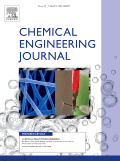
Chemical Engineering Journal
Advancing knowledge in chemical engineering and beyond.The Chemical Engineering Journal, published by Elsevier Science SA, stands as a premier platform for groundbreaking research in the multidisciplinary fields of chemical engineering, chemistry, and environmental science. With an impressive impact factor and ranking in the Q1 category across multiple categories such as Chemical Engineering, Chemistry, and Environmental Chemistry for 2023, this journal not only leads in publishing high-quality research but also emphasizes the latest advancements and innovative solutions in these critical areas. Researchers and professionals benefit from the rigorous peer-review process and can access a wealth of knowledge through the journal’s extensive archive, which has been a staple in academia since 1975. The Chemical Engineering Journal is vital for anyone aiming to advance their understanding of complex chemical processes, engineering applications, and environmental impacts, making it an essential resource for students, academics, and industry experts alike.
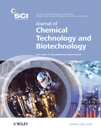
JOURNAL OF CHEMICAL TECHNOLOGY AND BIOTECHNOLOGY
Transforming Ideas into Impactful Solutions in Chemical TechnologyJOURNAL OF CHEMICAL TECHNOLOGY AND BIOTECHNOLOGY, published by WILEY in the United Kingdom, serves as a premier platform for research at the interface of chemical engineering and biotechnology. With an ISSN of 0268-2575 and E-ISSN 1097-4660, this journal has established itself as a crucial resource for scholars and professionals, evidenced by its impactful categorization in the Q1 and Q2 quartiles across multiple domains such as Inorganic Chemistry, Biotechnology, and Renewable Energy. The journal encompasses a broad scope that includes innovative research on sustainable technologies, pollution management, and advances in chemical syntheses, making it essential for those pursuing cutting-edge developments in these disciplines. Researchers and practitioners benefit from its comprehensive coverage, as it includes insightful articles, reviews, and case studies that collectively push the boundaries of contemporary science and engineering. With a ranking of Q2 in its various categories and significant percentiles in key fields, the journal stands as a beacon for high-quality scholarship, eligible for impact in both academia and industry.

Biotechnology for Biofuels and Bioproducts
Exploring Innovative Pathways for Sustainable EnergyBiotechnology for Biofuels and Bioproducts is a premier international journal published by BMC, situated in the United Kingdom, focusing on the critical intersection of biotechnology and sustainable energy solutions. Established as an Open Access platform in 2022, this journal aims to disseminate high-quality research that advances our understanding of biofuels, bioproducts, and their applications within environmental sustainability. With its commendable Q2 ranking in multiple relevant categories including Applied Microbiology and Biotechnology and Renewable Energy, this journal serves as a vital resource for researchers, industry professionals, and students seeking to explore innovative biotechnological approaches to address global energy challenges. The journal emphasizes interdisciplinary research, fostering collaboration among scientists in biotechnology, environmental science, and policy-making. As it continues to publish impactful findings until 2024, Biotechnology for Biofuels and Bioproducts remains essential for those dedicated to advancing sustainable methodologies in energy and resource management.

BIOTECHNOLOGY LETTERS
Advancing the Frontiers of Biotechnology ResearchBIOTECHNOLOGY LETTERS is a prestigious peer-reviewed journal that has been at the forefront of biotechnology research since its inception in 1979. Published by Springer, this esteemed journal serves as a vital platform for disseminating cutting-edge research in the fields of applied microbiology, bioengineering, and biotechnology, with a focus on innovative methodologies and technologies. With an impact factor reflecting its critical contribution to the discipline, BIOTECHNOLOGY LETTERS resides in the Q2 and Q3 tiers of various scientific categories, placing it among the notable journals in the biotechnological landscape. Although it offers traditional access options and does not feature open access, the journal embraces a global readership, encouraging submissions from researchers, professionals, and students eager to explore the dynamic advancements in biotechnology. Situated in the Netherlands, it continues to shape the future of the field through relevant, impactful research that addresses contemporary challenges and opportunities in medicine and beyond.
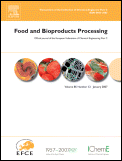
FOOD AND BIOPRODUCTS PROCESSING
Advancing food innovation for a sustainable future.FOOD AND BIOPRODUCTS PROCESSING, published by Elsevier, is a leading journal dedicated to advancing the fields of biochemistry, biotechnology, chemical engineering, and food science. With a strong impact factor and robust rankings—Q2 in Biochemistry and Biotechnology, and Q1 in Food Science—it serves as an essential resource for researchers, industry professionals, and students alike. The journal focuses on innovative research and practical applications in the processing of food and bioproducts, spanning from raw material transformation to product development. By fostering the exchange of knowledge and ideas, FOOD AND BIOPRODUCTS PROCESSING aims to enhance food quality and sustainability while addressing global challenges in food security and environmental impact. With an accessible format and a diverse pool of contributors, this publication stands as a vital platform for groundbreaking studies, making significant contributions to the advancement of technology and practices in food processing and production.

ENGINEERING IN LIFE SCIENCES
Shaping Tomorrow’s Solutions in Life Sciences EngineeringENGINEERING IN LIFE SCIENCES, published by Wiley, is a pivotal journal for professionals, researchers, and students dedicated to advancing the interdisciplinary fields of bioengineering, biotechnology, and environmental engineering. With an ISSN of 1618-0240 and an E-ISSN of 1618-2863, this journal has established itself as a reputable platform for disseminating innovative research findings and breakthroughs in engineering applications within the life sciences. Currently holding a prestigious Q2 ranking in multiple categories, including bioengineering and environmental engineering, it reflects a strong commitment to high-quality, impactful research (Scopus ranks: Environmental Science - Rank #61/197, Biochemistry, Genetics and Molecular Biology - Rank #112/311). The journal spans contributions from 2004 to 2024, ensuring a comprehensive archiving of evolving scientific discourse. Although it does not currently offer open access, its curated articles are accessible through institutional and single-article purchases, providing valuable insights and updates for the academic community. Join us in shaping the future of engineering within life sciences and stay informed on critical advancements that are driving innovation across multiple disciplines.

Biotecnia
Empowering scholars to shape the future of biotechnology.Biotecnia is a premier journal published by UNIV SONORA, dedicated to advancing the field of biotechnology through the dissemination of high-quality research and innovative findings. With its ISSN 1665-1456, this journal provides a vital platform for researchers, professionals, and students to share scholarly work that encompasses a diverse range of topics, including molecular biology, genetic engineering, and bioprocessing. Despite being based in Hermosillo, Mexico, Biotecnia’s reach extends globally, aiming to foster collaboration and knowledge exchange among the international scientific community. The absence of an open-access option enhances the journal's exclusivity while ensuring rigorous peer review, thus maintaining high academic standards. As biotechnology continues to play a pivotal role in resolving global challenges, Biotecnia stands as an essential resource for those committed to innovation and research excellence in this evolving discipline.
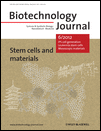
Biotechnology Journal
Driving excellence in applied microbiology and biotechnology.Biotechnology Journal, published by WILEY-V C H VERLAG GMBH, stands at the forefront of biotechnological research and innovation, recognized for its significant contributions to the fields of applied microbiology, molecular medicine, and broader biotechnology. With its ISSN 1860-6768 and E-ISSN 1860-7314, this journal has achieved impressive 2023 quartile rankings, positioning itself in Q1 for both Applied Microbiology and Biotechnology and Medicine (miscellaneous), and Q2 in Molecular Medicine, showcasing its impact and relevance within the scientific community. Based in Germany, the journal aims to disseminate high-quality research that drives advancements in biotechnological applications, fostering a platform for researchers, professionals, and students to engage with cutting-edge developments. With its ongoing commitment to excellence, the Biotechnology Journal is an essential resource for those seeking to stay informed about the latest trends and innovations in biotechnology.
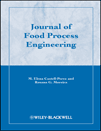
JOURNAL OF FOOD PROCESS ENGINEERING
Pioneering advancements in food process engineering.JOURNAL OF FOOD PROCESS ENGINEERING, published by WILEY, is a prestigious academic journal dedicated to advancing the field of food processing through innovative engineering research and practical applications. With an ISSN of 0145-8876 and an E-ISSN of 1745-4530, this journal serves as a crucial platform for researchers and professionals focusing on the intersection of chemical engineering and food science. Operating in the United States and established in 1977, it has gained a reputation for its rigorous peer-review process and high-quality publications, reflected in its Category Quartiles of Q2 in both Chemical Engineering (miscellaneous) and Food Science for 2023. The journal is also well-positioned within the Scopus rankings, holding the 104th spot out of 389 in Agricultural and Biological Sciences and the 82nd in General Chemical Engineering. While it currently does not offer Open Access options, the JOURNAL OF FOOD PROCESS ENGINEERING remains an indispensable resource for those looking to explore critical studies and developments that shape food processing technologies by the year 2024 and beyond.

Food and Bioprocess Technology
Connecting Researchers to Shape the Bioprocessing LandscapeFood and Bioprocess Technology, an esteemed journal published by Springer, serves as a premier platform for disseminating cutting-edge research in the realms of food science, industrial manufacturing engineering, and process chemistry and technology. Established in 2008, the journal has quickly ascended to the prestigious Q1 quartile in multiple categories, highlighting its impact and relevance within the scientific community. With an impressive Scopus ranking that places it in the top tiers of its fields—such as rank #17 in Safety, Risk, Reliability, and Quality, and rank #38 in Food Science—this journal is pivotal for researchers and professionals aiming to publish innovative findings that advance food processing and bioprocess technology. Beyond its rigorous peer-review process, the journal facilitates access to high-quality, impactful research, reinforcing its significant role in shaping the future of biotechnological applications in food systems. Aimed at both scholars and practitioners, Food and Bioprocess Technology is an essential resource for those engaged in exploring sustainable practices and enhancing food quality and safety. Furthermore, by addressing essential topics in the field, it fosters collaboration and knowledge exchange among researchers dedicated to advancing the bioprocessing landscape.